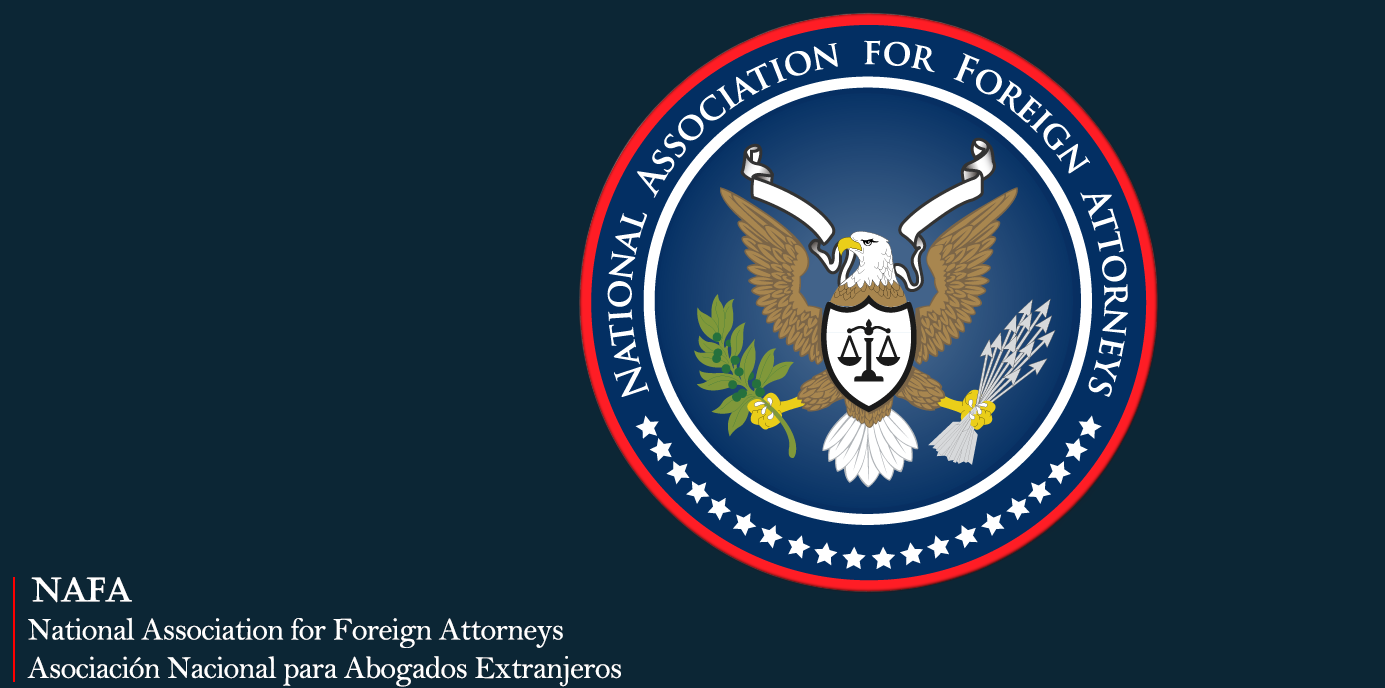
As required in all careers that grant certifications or licenses, there are restrictions and violations that can prevent or disqualify a foreign professional from practicing general practice or take away his or her license. It is also the case that committing a violation can take away your license from other foreign countries, including the United States.
When a NAFA member prepares for the California bar exam, they must also undergo a moral character determination to determine whether they can practice law.
| Table of Contents | ||
|---|---|---|
| 6 | Services | |
| 6.1 | Homologation | |
| 6.2 | Degree Validation in the US | |
| 6.3 | Equivalence of Degrees in the US | |
| 6.4 | Immigration or Citizenship in the US | |
| 6.5 | Translation of Degrees & Certificates | |
| 6.6 | Moral Character Determination & Background Checks | |
| 6.7 | Court Services | |
There are four different values or principles, which are described by the State Bar of California, according to the Guidelines for determining moral character. Any applicant, including a NAFA member, who wishes to take the California Bar Exam, must complete the process and apply to the Moral Character Guidelines. Foreign lawyers who also wish to become foreign legal consultants (FLC) registered with the Bar Association must also meet the requirements established by the Moral Character Guidelines. This process may take up to 180 days to be completed by the Bar Association. Some of these values involve a background check being performed.
For more information about admission to the bar, please review the Guidelines for determining moral character. NAFA also has values and a determination of ethics and character for its members, according to the NAFA Member's Manual.
NAFA ensures that throughout the certification process, the member meets a good reputation of moral character before proceeding, as it is a prerequisite and part of being qualified to sit for the bar exam or obtain a license as a foreign legal consultant.
A determination is made through the applicant's criminal history for any convictions. A felony conviction has several determining factors, such as: whether the act was violent, when the crime occurred, whether there were aggravating factors, or any other conviction.
Conviction for drug sale or possession can be determined based on whether the drug was in possession or sold. Another factor may be determined if this is a first-time conviction.
Conviction for an alcohol or drug-related misdemeanor is based on whether there were (1) aggravating factors and/or (2) multiple convictions involved. The totality of the circumstances is immediately recognized.
A conviction for an adult misdemeanor generally is based on whether the crime (1) occurred within five years and (2) aggravating factors, which involve some (3) moral turpitude. Also, whether the criminal misdemeanor can be expunged or is an exception based on the State Bar.
A vehicle code misdemeanor conviction can be determined based on (1) aggravating factors, such as hit and run, (2) whether drugs or alcohol were involved, or whether the misdemeanor occurred ( 3) during or after law school.
An adjudication for a misdemeanor or juvenile felony can have strong determining factors, such as: (1) whether the offense occurred between the ages of 16 and 18, (2) whether the offense was related to a robbery or a firearm, or if there were aggravating factors in determining the conviction or conduct (3) including, but not limited to, car riding, vandalism, stalking.
A Vehicle Code Violation or Municipal Code Violation may have a small chance of investigation, unless the violation involved being in possession of an open container of alcohol or there was indecent exposure involved.
The other three main determining factors based on criminal conviction are: the time since the conviction, the severity of the criminal conduct, and the number and frequency of convictions. Another general crime factor is whether the criminal record can be expunged after a certain period of time. Or if the Statute allows non-disclosure to the State Bar.
Fraudulent activity or any allegation of fraud is subject to investigation by the State Bar of California. Further investigation depends on (1) the totality of the circumstances and (2) any financial loss that occurred.
Omission or mischaracterization in the application to the State Bar, Law School, or other licensing agency is subject to investigation, whether the omission was minor or material.
Additional Investigation may be required by the State Bar based on any Denial of Admission to the Practice of Law, based on substantive factors or moral considerations, or due to a adverse determination of moral character in California. This includes an admission or denial of licensure for a non-legal profession.
Any violation of the Honor Code or the Code of Conduct at the School of Law or any undergraduate or postsecondary institution is also subject to investigation.
A breach of fiduciary duty is subject to investigation based on whether there is a pending or sustained complaint, or whether aggravating factors are involved. Unpaid or overdue federal or state income taxes are subject to investigation if there was any judgment, such as a civil penalty or financial settlement; Also, if there was any conviction made as fraud or tax evasion. The same applies to a bankruptcy, even if objections were found to be dismissed.
Any Overdue Debt, Debt in Collections is subject to investigation if there are one or more unsatisfied judgments, lawsuits filed to recover debt, or if the debt defaulted on the loan or was sent to collections.
Any complaint or allegation of unauthorized practice of law, lawyer or non-lawyer malpractice, professional form of discipline or judicial sanction is subject to investigation. Lastly, the applicant should know if they have any civil action filed by or against them, and any aggravating factors.